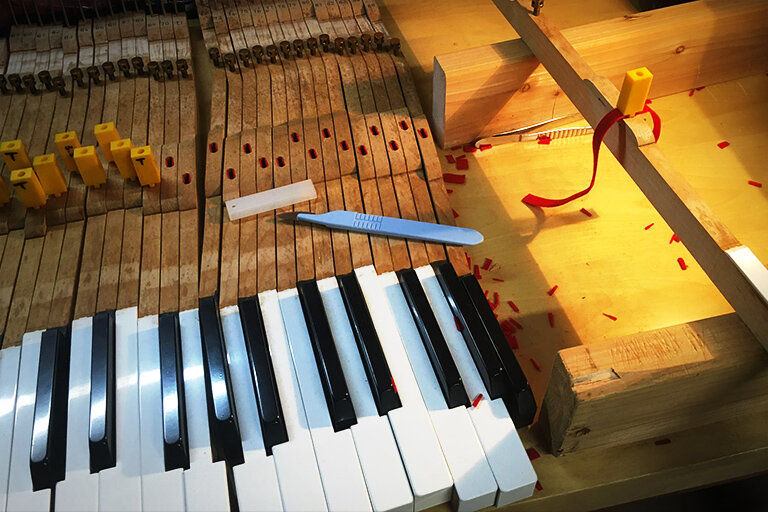







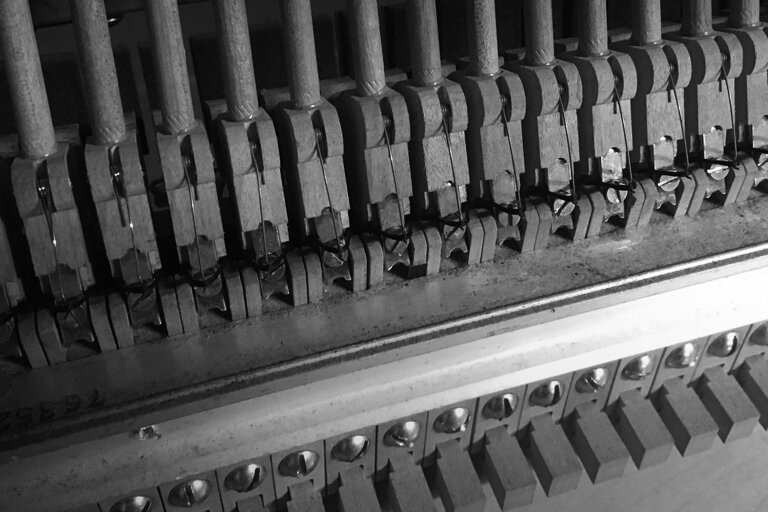



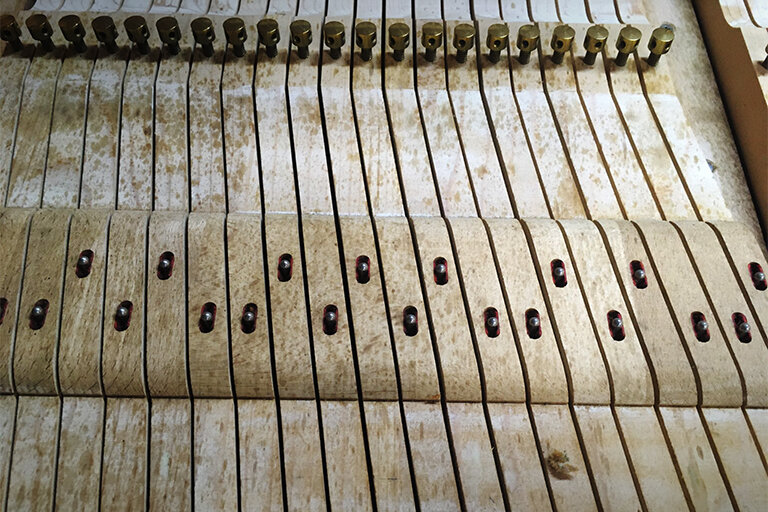

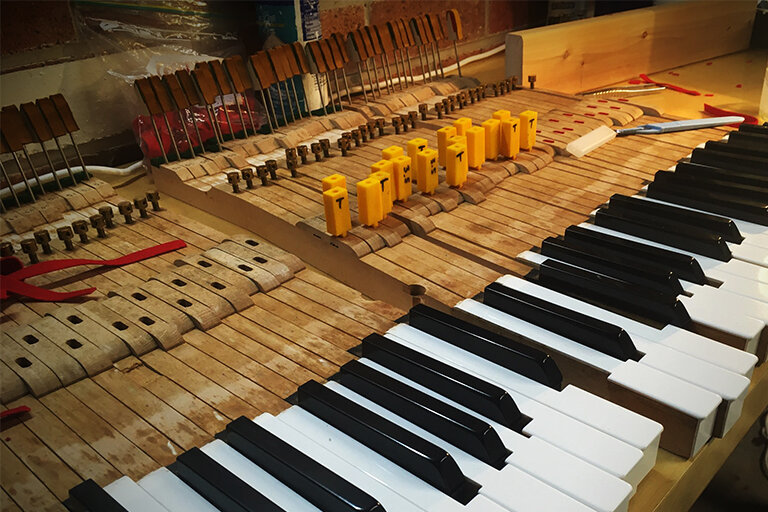




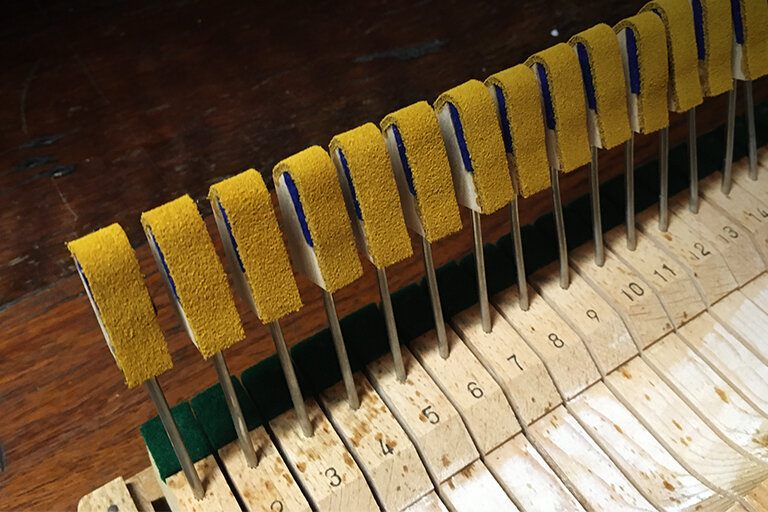
Piano sales
Whether you are an amateur or a professional, a private or an institution, buying a piano is probably an important commitment. Our advice is for you to contact a piano professional to guide you along the process, and to take your time.
Inspection, report, quote
Before you buy a piano, it is important to obtain professional advice. To evaluate whether the purchase is worthwhile or not, based on necessary work and the overall quality of the instrument, we recommend you to contact our technician.
Tuning
Tuning is generally recommended at least once a year, and takes about two hours. It involves adjusting the tension of each string to establish the pitch and relationship between musical intervals, transforming the piano’s sound from discordant to harmonious.
Pitch adjustment
A pitch adjustment, or pitch raise is a pre-tuning operation, necessary to reestablish string tension when the piano is significantly out of tune. The steel strings have a “memory”, meaning that they will partly return to their previous tension after being stretched in a pitch raise, thus a succession of adjustments may be necessary. Keep your piano tuned regularly!
Regulation
Regulation is the mechanical repositioning and realignment of thousands of parts in the piano’s action. It mostly compensates for the effects of wear and tear. Regulation enhances touch and also affects voicing to a lesser extent.
Voicing
Voicing is concerned with the harmonic content of the sound, its quality and timbre definition. The piano must be regulated and tuned before voicing can be carried out. Inserting needles in the felts (“pricking the felts”) modifies tension and changes the timbre accordingly.
Repairs & Reconditioning
Reconditioning involves the dismantling, refurbishment and reassembly of thousands of parts, including vast numbers of small hand-cut felt pieces, to restore the piano's touch and sound. Precise, patient and repetitive work is required, with each of the 88 keys having a large number of associated parts.
Such extensive and complex work becomes necessary due to wear and tear over time, even if the piano has been serviced regularly (at least once a year). Damage to the piano caused by humidity, pests and accidents can necessitate substantial and expensive reconditioning, or can even destroy a piano completely.
Please read Care and maintenance
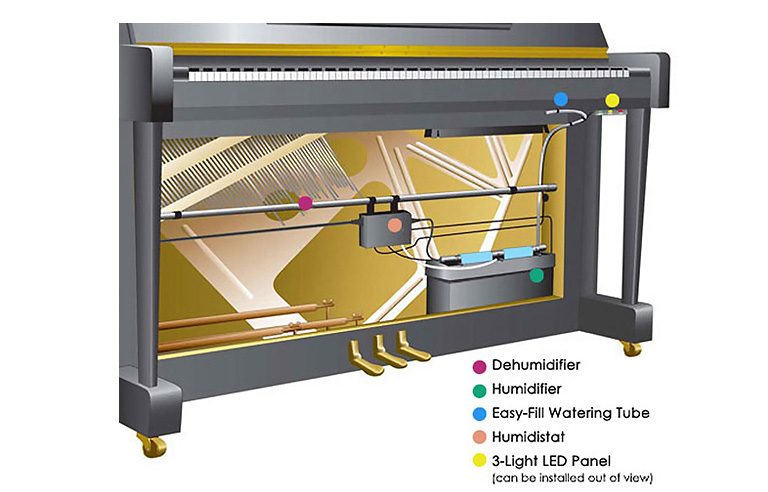
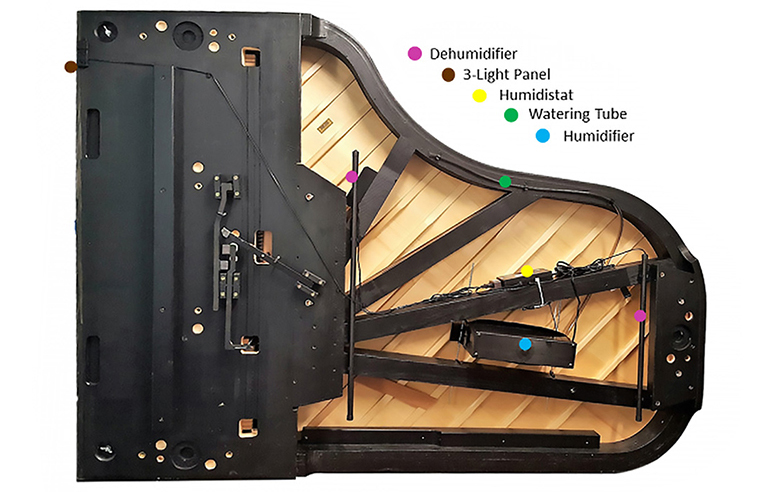
Piano Lifesaver Systems
We supply and install humidity control systems specifically designed for pianos. These devices will extend the life of the piano, and help to maintain optimum sound qualities, allowing full enjoyment of the instrument.
Humidity Monitoring
We can monitor and report on hourly humidity levels in a given situation. This can answer many questions, such as: is this environment suitable for a piano? Why does this instrument go out of tune so quickly?
It can also collect valuable data to back up an insurance claim or budget proposal.








